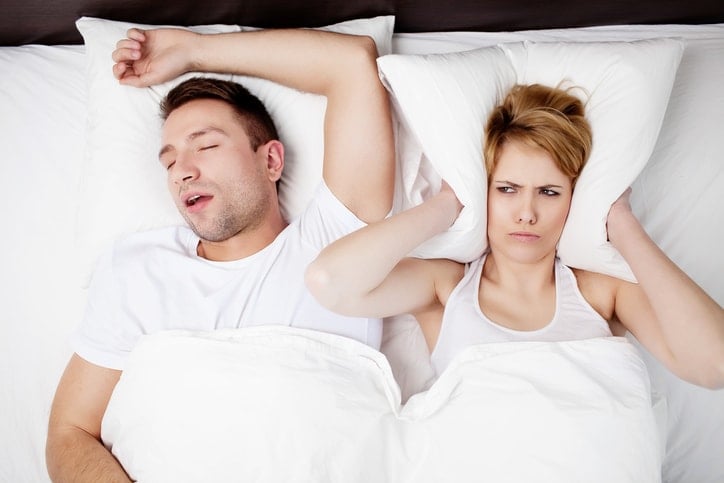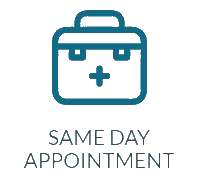Do I have Sleep Apnea?

Do you frequently wake up in the morning with a headache? Does your partner tell you that you snore loudly? Do you feel tired all day after a full night’s sleep? If this describes you, you might be one of the 18 million Americans who suffer from sleep apnea.
What Is Sleep Apnea?
Sleep apnea occurs when upper airway passages restrict your breathing during sleep. This airway restriction deprives your body of oxygen and forces you to wake up to breathe. Left untreated, sleep apnea can cause chronic fatigue, anxiety, panic attacks, and can increase your risk of heart conditions and stroke. There are three kinds of sleep apnea:
- Obstructive Sleep Apnea: This condition is caused by a blocked or collapsed airway while sleeping.
- Central Sleep Apnea: This form of the condition occurs when the brain stops sending signals to your body to breathe while sleeping.
- Complex Sleep Apnea Syndrome: This form is a combination of both obstructive and central sleep apnea.
What are the Signs of Sleep Apnea?
A sleep study ordered by your doctor is the only way to definitively diagnose sleep apnea. However, there are several signs and symptoms that indicate you might have the disorder. These include:
- Extreme Dry Mouth: If you wake up and need a big glass of water, you’re probably sleeping with your mouth wide open. With sleep apnea, a dry mouth is a sign that you’re not getting enough air through your nose and you’re trying to make up the deficit by breathing through your mouth.
- Headaches and Fatigue: If you usually wake up with a headache, you’re most likely not getting enough deep, restorative sleep each night. As your body quickly wakes you up to start breathing again (so quickly you don’t notice), you never get the chance to reach the deep sleep cycle vital to a good night’s rest. You’ll also feel lethargic during the day.
- Pain in the Jaw and Teeth: Waking up with a painful jaw and teeth is another sign of sleep apnea. Your body straining its jaw muscles in an attempt to take in more oxygen causes the pain.
- Excessively Loud Snoring: Persistent, loud snoring is a main indicator of sleep apnea.
- Gasping for Air: Waking up while gasping or choking is a telltale sign of sleep apnea. This is your body’s natural reaction to being deprived of oxygen. If you suffer with this symptom, see your doctor right away for a sleep study.
When You Should See Your Doctor
Often, snoring is normal, daytime fatigue is due to any number of health issues, and headaches are caused by stress. But, if you or your partner notice any of the following signs of sleep apnea, call your doctor right away:
- Snoring that’s so loud it wakes you or your partner
- Waking up with shortness of breath, choking, or gasping
- Long pauses in your normal breathing pattern while sleeping
- Feeling so fatigued during the day that you fall asleep at your desk or while driving
If you think you might be suffering with sleep apnea, contact us today for a consultation with one of the expert physicians at Park Avenue Medical Professionals. Our team specializes in the diagnosis and treatment of sleep apnea and a variety of other sleep disorders. Fill out the form on this page to request an appointment or call 212.427.2000 to learn more.



